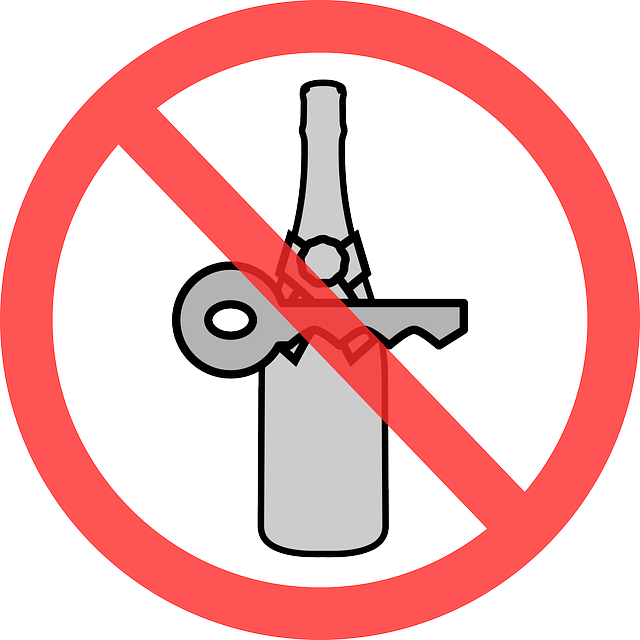Homeownership is a key factor in maintaining mental stability and preventing impaired driving. It offers financial security, reduces uncertainty, and creates a safe environment, which significantly contributes to better mental health outcomes. By safeguarding assets and promoting responsible decision-making, ownership discourages risky behaviors like impaired driving. Prioritizing mental well-being and avoiding such behaviors is essential for community safety and asset protection, especially during economic downturns, as demonstrated by various case studies.
Home ownership is often considered a cornerstone of financial stability. However, it’s not just about monetary value—it’s a sanctuary that impacts our mental health and security. This article delves into the intricate link between homeownership and financial well-being, exploring how asset protection strategies can safeguard your investment. We discuss impaired driving risks, their legal implications on assets, and provide practical tips to enhance your financial future. Through real-life case studies, we highlight successful homeowner strategies, offering insights into navigating mental health challenges alongside asset preservation.
- Understanding the Link Between Home Ownership and Financial Stability
- The Impact of Asset Protection on Mental Health
- Impaired Driving: Risks, Consequences, and Legal Implications
- Strategies to Safeguard Your Home and Assets
- Case Studies: Success Stories of Homeowners Protecting Their Investments
Understanding the Link Between Home Ownership and Financial Stability

Having a sense of stability is crucial for maintaining good mental health, which in turn positively impacts decisions like driving safely. Home ownership plays a significant role in fostering this stability. It offers individuals and families a secure base, reducing financial uncertainties often linked to renting or temporary accommodations. With a home, residents can establish roots, plan for the future, and build equity over time.
This financial security is particularly important in mitigating risks associated with impaired driving. When individuals feel stable and secure in their living situations, they are less likely to engage in risky behaviors like drinking and driving. Home ownership encourages responsible decision-making as it provides a sense of accountability and long-term commitment, promoting safer choices for oneself and one’s family.
The Impact of Asset Protection on Mental Health

Home ownership can significantly contribute to an individual’s mental health by offering a sense of security and stability. It provides a safe haven, free from the uncertainties associated with renting, which can be particularly beneficial for those recovering from impaired driving or other traumatic experiences. Having a place to call your own allows individuals to build a support system and establish roots, fostering a sense of belonging and reducing feelings of isolation that are often linked to mental health struggles.
Asset protection plays a crucial role in this process by safeguarding the home, which serves as a financial investment and an emotional sanctuary. It ensures that individuals can focus on their well-being without worrying about potential legal repercussions or financial losses related to their property. This peace of mind is invaluable for those dealing with mental health challenges, enabling them to prioritize self-care, seek treatment, and rebuild their lives without the added stress of securing their home.
Impaired Driving: Risks, Consequences, and Legal Implications

Impaired driving poses significant risks, not just to your physical well-being but also to your mental health and overall asset protection. When operating a vehicle under the influence of alcohol or drugs, reaction times are impaired, judgment is clouded, and decision-making abilities are compromised. This increases the likelihood of accidents, which can lead to severe injuries or even fatalities, carrying profound legal implications.
The consequences extend beyond potential criminal charges and fines. A conviction for impaired driving can result in license suspension or revocation, impacting your ability to commute to work or access essential services. Additionally, court-ordered rehabilitation programs and mandatory attendance at support groups can further strain mental health resources. Moreover, the financial burden of legal fees, medical bills, and vehicle repairs or replacement can weigh heavily on individuals and their families.
Strategies to Safeguard Your Home and Assets

Protecting your home and assets is a multifaceted endeavor that requires a proactive approach. One often overlooked aspect is maintaining mental health, which can significantly impact decision-making abilities. Stressed or anxious homeowners might make impulsive choices regarding their properties, such as overspending on non-essential upgrades or neglecting necessary repairs, ultimately putting their assets at risk. Regularly prioritizing mental well-being through activities like meditation, exercise, and seeking professional help when needed, can foster clear judgment and prudent financial decisions.
Additionally, preventing impaired driving is crucial for safeguarding your home and surroundings. Operating vehicles under the influence of alcohol or drugs not only poses a danger to public safety but also carries severe legal consequences that could include fines, license suspension, and even imprisonment. Homeowners should be mindful of their responsibilities as responsible property owners and neighbors, promoting safe driving practices within their communities. This includes reporting impaired drivers and encouraging loved ones to make sober transportation choices to protect not only lives but also the value and integrity of personal assets.
Case Studies: Success Stories of Homeowners Protecting Their Investments

In a world where economic landscapes can shift unexpectedly, safeguarding one’s largest investment—one’s home—is paramount. Case studies from across diverse communities highlight the success of homeowners who’ve protected their assets through strategic foresight and proactive measures. For instance, in urban centers grappling with rising crime rates, implementing robust security systems and participating in neighborhood watch programs have not only enhanced safety but also retained property values.
Moreover, personal narratives often reveal the profound impact of maintaining a stable home environment on mental health and even mitigating impaired driving. Homeowners who’ve invested in comprehensive insurance policies, for example, find peace of mind knowing their assets are protected against unforeseen events. This sense of security can positively influence overall well-being, reducing stress and promoting better decision-making, which is particularly significant when considering the link between mental health and responsible behavior on the road.
Home ownership not only serves as a tangible asset but also plays a pivotal role in enhancing financial stability and overall well-being. By understanding the risks associated with impaired driving, implementing effective asset protection strategies, and learning from successful case studies, homeowners can safeguard their investments and ensure peace of mind. This comprehensive approach to home ownership includes considering mental health implications, demonstrating that protecting your property is not just about financial security but also about preserving a stable future for yourself and your loved ones.






